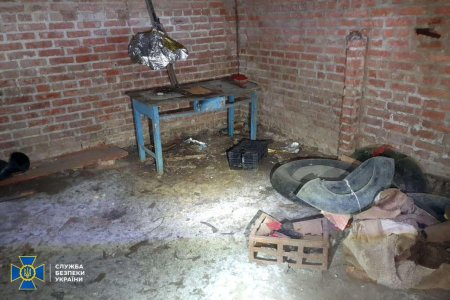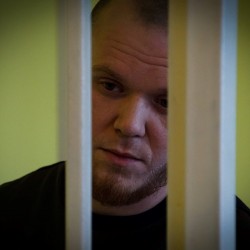![Фото з телеграм-каналу Володимира Зеленського [обмін полоненими]](https://khpg.org/files/img/1608820180.jpg)
“Ours are at home. 207 guys. We are returning them no matter what. We remember everyone in captivity. Soldiers and civilians. We must return everyone. We are working on it,” Volodymyr Zelensky wrote in his telegram channel.
Among those who have been returned are civilians and soldiers, including doctors from the Mariupol steel plant and Azovstal, Zmiinyi island defenders, and two captured brothers. A soldier whose wife and daughter were killed in a rocket attack in Dnipro is also on his way home.
“We managed to rescue Junior Sergeant Zakhar from enemy captivity. He fell into the hands of Russian terrorists together with his wife Tetiana after being evacuated from Azovstal in May 2022. The woman was exchanged and returned to Ukraine in less than six months. Tetiana settled with her two daughters in Dnipro. However, on January 14, 2023, Russians fired a missile at the high-rise building where the family lived. Tetiana died under the rubble along with her younger daughter and her husband’s mother. Her eldest 19-year-old daughter, Ruslana, is waiting for her father’s return today,” the Coordination Center for the Treatment of Prisoners of War informed.
“Next, the returned soldiers will have a warm dinner, receive clean clothes, pass a medical examination, restore documents, bank cards, and then rehabilitation course,” emphasized Ombudsman Dmytro Lubinets.
The exchange expectancy was overshadowed by the crash of the Russian IL-76 transport plane on January 24 in the Bielhorod Region. Russian authorities claim that it was carrying 65 Ukrainian prisoners of war destined for exchange and blame the crash on the Ukrainian Armed Forces. Through propaganda media, the Russians distributed a “list of dead Ukrainians,” which later revealed inconsistencies, including the name of a prisoner already exchanged on January 3.
Also, the crash site photographs released by Russia do not show the bodies of the dead. Russians announced that only three Russian soldiers guarded the Ukrainians in the plane, which also raises questions. Many more guards were present during previous exchanges, according to the testimony of already released prisoners of war. Ukraine appealed to the UN to conduct an independent investigation into the crash. However, Russia has refused to allow international experts to investigate the IL-76 crash, stated SSU. The Ukrainian side emphasizes that Russia did not warn it about plans to transport prisoners by this particular plane and along the route that Russians usually use to deliver weapons to the front line.
It should be noted that, according to Article 46 of the Geneva Convention relative to the Treatment of Prisoners of War, “The Detaining Power shall take adequate precautions, especially in case of transport by sea or by air, to ensure their safety during transfer, and shall draw up a complete list of all transferred prisoners before their departure."
During today’s exchange, those Ukrainians returned from Russian captivity who were supposed to be exchanged on January 24, except 65 people whom the Russian side calls dead. This was stated in a comment to Ukrinform by a representative of the Defense Ministry’s Main Intelligence Directorate, Andrii Yusov. The Ukrainian side still has no evidence of the deaths of Ukrainian prisoners of war, and Russia is not returning the bodies of people it claims to be killed.
![Фото з телеграм-каналу Володимира Зеленського [обмін полоненими]](https://khpg.org/files/img/1608820181.jpg)
To remind you, the last prisoner exchange took place on January 3, when 230 Ukrainian citizens, both military and civilians, returned home. It was the first exchange after a long pause of five months. “Among those returned were both those who were officially recognized as a prisoner of war (182 people) and those Ukrainian service persons who were considered missing (48 people),” the Coordination Center for the Treatment of Prisoners of War informed on January 3. “Most released were men (225), and five were women. There were 213 privates and sergeants; eleven were officers.” Among them were the defenders of Mariupol, Azovstal and Zmiinyi Island. 90% of prisoners of war who were returned on January 3 were subjected to torture in Russia.
“The state of their health is quite alarming because Russian captivity is not a place where you can improve your health, to put it mildly. And most of them need rehabilitation if not immediate medical help; they have chronic diseases that also require medical care,” Petro Yatsenko, head of the Coordination Center’s press service, said after the exchange on January 3.
Since the beginning of the full-scale invasion, 3,035 Ukrainians defending their country have been released from Russian captivity. In total, according to the Coordination Center, it is known for sure that more than eight thousand Ukrainians, both military and civilians, are still in captivity. The International Committee of the Red Cross confirmed the fate of only half of them. “But there are tens of thousands of people, both civilians and prisoners of war, considered missing,” said Yurii Taraniuk, a representative of the Coordination Center for the Treatment of Prisoners of War, quoted by Interfax.



